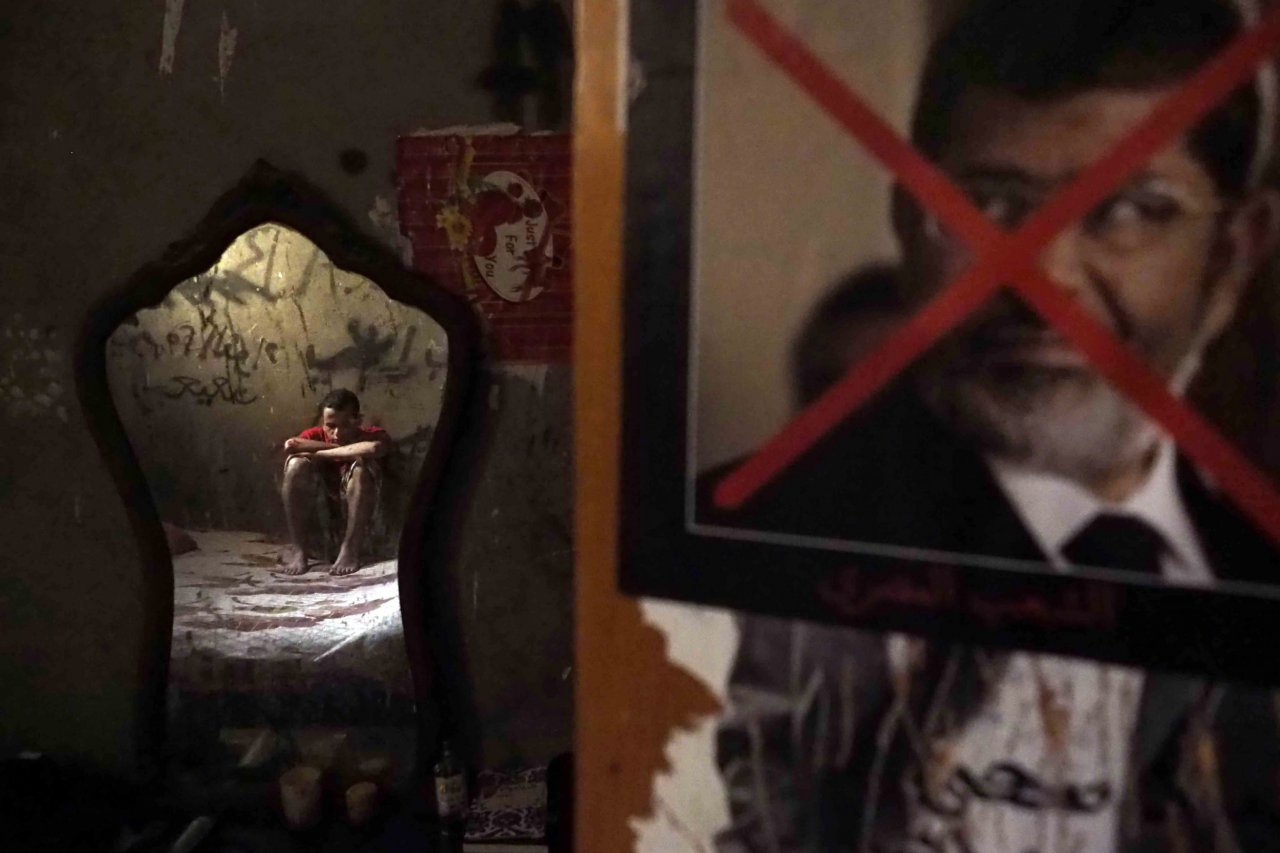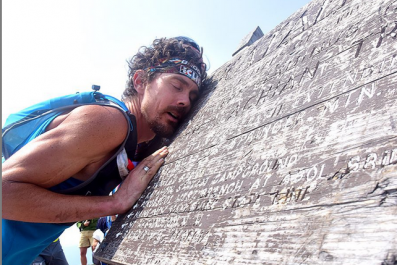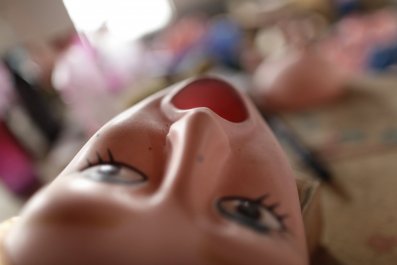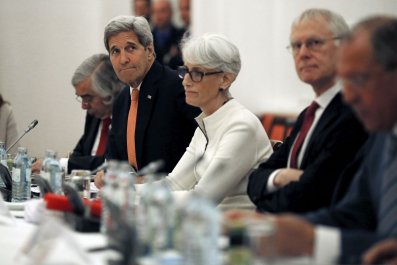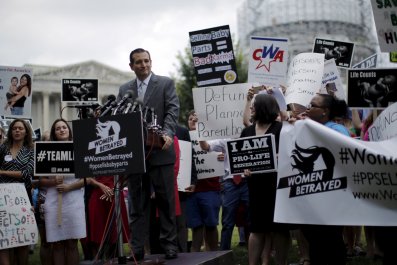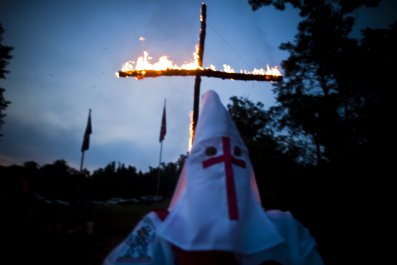In the four years since the Arab Spring, Egypt's Muslim Brotherhood has gone from the streets to the presidential palace and back again. Now, with its leader sentenced to death and its followers persecuted by President Abdel-Fattah el-Sissi's regime, the Muslim Brotherhood is at a critical juncture. Will it be destroyed? Will it give up on its doctrine of nonviolence? Or will it just fade away, its younger members drawn to more radical movements such as ISIS?
Under el-Sissi, Egypt is enduring what Human Rights Watch's Joe Stork calls "a human rights crisis that is the worst in memory." While el-Sissi remains popular, peaceful assemblies are outlawed; police shoot demonstrators and abuse thousands of political detainees with impunity. Since the military coup of 2013 that overthrew the Brotherhood's Mohammed Morsi, the country's president, Egypt has been racked by violence between Islamists and security forces.
Anyone opposing the regime faces severe repression, but the Muslim Brotherhood is particularly targeted. "The new regime moved very quickly to decapitate the organization, which meant arresting the top three tiers of the organization," says Eric Trager of the Washington Institute for Near East Policy. Since Morsi's fall, tens of thousands of members have either been detained or fled into exile, and only a minority of the Brotherhood leadership has managed to escape, mainly to Istanbul.
Their leader, Mohammed Badie, was sentenced to death in April 2014 along with 682 other Morsi supporters in a trial that lasted just eight minutes. The thoroughly politicized courts have also sentenced Morsi to death, in May 2015. By comparison, Hosni Mubarak, the country's dictator for 30 years, got three years for corruption charges.
Yet Brotherhood supporters remain defiant. Mustafa el-Nemr, a former Muslim Brotherhood activist now in Turkey, who was imprisoned under el-Sissi, predicts people will fight back. "Over 100,000 families have a direct cause to seek revenge from el-Sissi's regime, so it's nearly impossible to control them all," he says.
According to a former Brotherhood activist, who left the organization four years ago "because the structure was not democratic," the Brothers are holding together despite the repression. "This kind of oppression works as a glue," says Abdelrahman Ayyash." The regime is stupid—they are keeping the Brothers going."
After the toppling of Mubarak in 2011, the Freedom and Justice Party, the political arm of the Muslim Brotherhood, won a sweeping victory in the first democratic parliamentary elections in the country's history, followed by the election of Morsi, their presidential candidate. The formerly outlawed Brotherhood was suddenly on top.
However, Morsi was accused of putting self-interest before the country, and many Egyptians perceived him as failing to tackle economic issues. By 2013, thousands were once again in the streets, protesting the Brotherhood's autocratic tendencies. In July 2013, the military seized the opportunity provided by the public's discontent and ousted Morsi.
The summer descended into a bloodbath. Brotherhood supporters, outraged by the coup, protested in the streets but were mowed down by police. The violence culminated on August 14, when security forces stormed a sit-in outside the Rabaa al-Adawiya mosque in Cairo. They killed over 800 civilians in what Human Rights Watch called a crime "equal to or worse than China's Tiananmen Square killings in 1989."
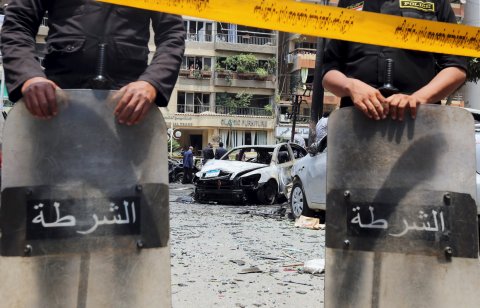
Government hostility is hardly new to the Brotherhood. Founded in 1928 by Hassan al-Banna as a force to resist British domination, the organization grew quickly but fell out with the nationalist military leaders who took charge in 1952, after the British-backed King Farouk abdicated. The group's members went underground, surviving under various regimes—persecuted under Gamal Abdel Nasser (1956 to 1970), whom the Brothers tried to assassinate in 1954; kept in check by Anwar Sadat (1970 to 1981); and initially tolerated by Mubarak (1981 to 2011). That détente ended when the Brothers won a shocking 20 percent of the Parliament seats in 2005 elections, and Mubarak lashed out.
As a result of decades of repression, the Brotherhood has developed a tight-knit organization. "You don't just sign up for the Brotherhood, it's a serious process," says Shadi Hamid, a Middle East expert at the Brookings Institution.
Aspiring members have to go through five to eight years of indoctrination, slowly moving toward full membership. The Washington Institute for Near East Policy's Trager says the organization "seeks to Islamize the individual through its rigid indoctrination process, and then the families, the society, the state and finally the world."
Part of the Brotherhood's appeal is its mix of political Islam and social work—it officially renounced violence in the 1970s and, like Hezbollah in Lebanon and the Palestinian group Hamas, earned goodwill by running schools, sports clubs and other social services. The formula has spread to many countries, from Senegal to Russia, and in Egypt today, Hamid estimates, the Brotherhood has somewhere around 500,000 members, many of whom contribute up to 15 percent of their salary monthly.
Even if el-Sissi's crackdown doesn't kill the organization, it will probably alter it fundamentally. For a long time, the Muslim Brotherhood has faced an ideological challenge—a split between those who stand true to the Brotherhood commitment to nonviolence and those who consider violence to be legitimate in certain situations.
Hamid says the organization's decapitation by el-Sissi's regime has forced a generational shift. "With the old guard leadership abroad or in prison, younger members in Egypt have had to rise to the occasion out of necessity and assume leadership."
Among this new leadership are some who advocate a "defensive violence" doctrine, with the aim of destabilizing the el-Sissi regime by attacking infrastructure, such as the power grid, and exacting revenge on the security forces. "If you're a 60-year-old Brother, you've had the nonviolence doctrine drilled into you for decades, but if you're 22 and have only been in the Brotherhood for three years, you feel less bonded to it," Hamid says.
Many think this new approach is playing into the hands of the regime. Ayyash, the former Brotherhood member, says the organization's leadership lacks control over its members. "It's completely decentralized. I have been talking to a few members and leaders, and when I was asking them, 'Why don't you intervene to calm down the youth in Egypt?' they said, 'Everyone in Egypt is on their own.'"
There is a risk that disenchanted members might leave the Brotherhood for ISIS. This hasn't happened to a significant extent, which according to Hamid is due to the group's strong hierarchy and the loyalty of its members.
Other countries in the region are watching closely. The Brothers have been one of the few nonviolent political forces in the Middle East, and one of the best organized. They are the sworn enemies of major players like the Saudis, who provide the el-Sissi regime with billions of dollars in support. Although Saudi policy on the Brotherhood may be softening as King Salman focuses on combating a sanctions-free Iran, the Brothers remain a potential threat to the Saudi monarchy.
"The Muslim Brotherhood is an organized religious opposition and support democratic elections—the Saudis don't like either of those things," Hamid says.



